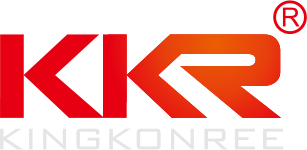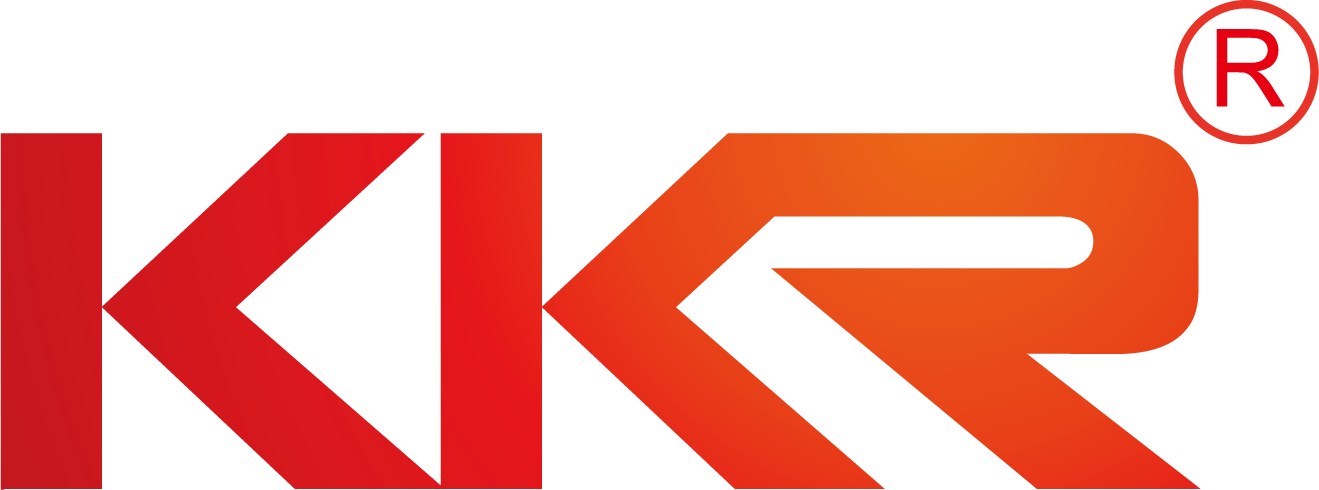Solid Surface Countertops vs Quartz Countertops: Which is Better?
Did you know that quartz countertops are 33% heavier than a solid surface countertop for the same thickness and size? The difference in weight can have a significant impact on its application and feel. Quartz and solid surface countertops can be indistinguishable aesthetically. However, they are very different in material composition and performance. Solid surface countertops can mimic the quartz design down to the finest details of veining and color.
The countertop plays a significant role in the kitchen. Almost every interaction in the kitchen involves the use of the countertop. Alongside being a key working surface, it is the design focal point. Covering all aspects from durability to premium aesthetics is key to a long-term investment. This blog post will start by building a basic understanding of countertops, then provide a deep analysis of each material, i.e., quartz and solid surface countertops. Finally, we will mention a head-to-head comparison of both materials.
By the end, our reader will have a comprehensive understanding of countertops and material comparison to make a well-educated purchase decision. Let's begin!
Understanding Solid Surface Countertops
-
● What is Solid Surface?
A solid surface countertop consists of a man-made material. It is a combination of mineral dust (aluminum hydroxide powder) and a binder (acrylic or polyester resin). By combining these materials, it provides a surface that is non-porous in nature and exhibits a seamless appearance. Its ability to mold into shapes makes it an excellent material for creative interior designs.
-
● Properties
- ○ Composition: Approximately 66% mineral dust (aluminum trihydrate) and 33% acrylic or polyester resins (manufacturer dependent).
- ○ Weight: About 4.4 pounds per square foot at a standard thickness.
- ○ Porosity: 100% non-porous.
- ○ Heat Resistance: Can withstand temperatures up to approximately 320°F (160°C).
-
● Characteristics
- ○ Durability and Repairability: The solid surface material is highly durable owing to its ability to resist wear. The hardness of solid surface material is 3-4 on the Mohs scale, but due to its exceptional repairability, the material is a hot favorite in kitchen countertops. Simple sanding and polishing are enough to restore the original shape.
- ○ Seamless and Non-Porous: The biggest advantages of using solid surface worktops are their seamless and non-porous properties. Two slabs of solid surface countertops can join invisibly. There is no need for fillers. Moreover, its non-porous nature makes it hygienic and easy to clean.
- ○ Customization: The color palette of solid surface countertops is extensive, offering options that mimic quartz or real marble. Installers can tailor dimensions, shapes to create a unique kitchen space. By applying a little heat, installers can bend the solid surface countertop and allow it to cool down. The material retains its properties after cooling to atmospheric temperature.
- ○ Safety and Eco-friendliness: Solid surface material also comes with "Zero Silica" and "no silicon", making them safer for installation and use. The dust that forms during the manufacturing process does not cause harmful effects to the human body.
-
● Pros
- ○ Thermoformable into unique shapes and edgeless countertop
- ○ Indistinguishable joints between two slabs.
- ○ Non-porous, highly hygienic, stain-resistant.
- ○ Repairable using a simple process.
- ○ Wide range of colors and designs.
-
● Cons
- ○ Can be scratched or cut, although these are repairable.
- ○ Soft in comparison to quartz
Understanding Quartz Countertops
-
● What is Quartz?
Quartz is also known as engineered stone. It is is combination of crushed quartz, resins, and pigments. The presence of quartz makes the countertop surface hard and offers superior scratch resistance. The high percentage of ground natural quartz makes it heavier and more natural in physical properties. The lifespan of a quartz countertop is between 15 to 25 years with proper care.
-
● Properties
- ○ Composition: An engineered stone containing 90-95% crushed quartz (SiO2) and 5-10% polymer resins.
- ○ Hardness: Rated 7 on the Mohs hardness scale.
- ○ Density: Approximately 20-25 pounds per square foot.
- ○ Porosity: 100% non-porous, due to the resin binders.
- ○ Thermal Resistance: Tolerates temperatures up to 300°F. However, resins can be damaged by prolonged, intense heat.
-
● Characteristics
- ○ Hardness and Durability: Quartz is one of the hardest naturally occurring minerals. It makes quartz counter tops a hard material with 6-7 on the Mohs scale. The hardness allows the material to be very durable, scratch-resistant, and impact-resistant.
- ○ Non-Porous Surface: There is no need to seal quartz countertops. They are non-porous in nature due to the presence of thermoplastics that occupy the gaps between quartz material. They are highly resistant to stains and do not allow space for bacteria to grow.
- ○ Appearance: Unlike marble, Quartz exhibits a more uniform aesthetic. The engineered stone can have a smooth and glossy finish with dramatic veining or a simple uniform design pattern. It can come in a variety of colors. It can be in a marble-like, solid color, or granite-like material.
- ○ Heat Resistance: Engineered stone or quartz can safely handle temperatures up to 180 °C (356 °F) for up to 10 minutes.
-
● Pros
- ○ Extremely hard material, making it scratch-resistant
- ○ Non-porous and stain-resistant.
- ○ There is no need for special sealing or coating
- ○ Engineered nature allows room for creativity with tons of patterns and colors
-
● Cons
- ○ Direct contact with extreme heat, like hot pans and objects, can damage
- ○ Visible seams as the material needs to be joined by color-matching with epoxy
- ○ Higher price tag owing to the high percentage of natural quartz material
- ○ Chips are difficult to repair invisibly.
Quartz vs. Solid Surface Countertops: Which is Better?
-
● Aesthetics and Design:
From an aesthetic and design point of view, solid surface countertops provide more versatility. Whether it's a kitchen or a reception countertop, a solid surface countertop provides thermoformability, unlocking creativity and design. In comparison, quartz offers a more natural stone-like appearance and feel.
The solid surface worktops can form integrated sinks and complex curves that are not possible with the use of quartz. However, quartz exhibits a high-end, classic stone look.
-
● Durability and Maintenance:
Durability is one thing, but being able to maintain a material is also key to its long-term viability. Quartz is a hard material that makes it resistant to scratches. In comparison, solid surface material provides extraordinary reparability, which makes the original scratch non-visible. Quartz is resistant to scratches not completely scratch-proof. However, both material provides an exceptional non-porous nature, making them hygienic and suitable for applications like kitchens or bathrooms.
-
● Cost and Value:
The price tag for both materials can vary depending on the design selection and material composition. However, in general, quartz countertops are more expensive in comparison to solid surface countertops. The presence of 90-95% quartz in their formation raises the manufacturing cost.
-
● Environmental and Health Factors:
When considering environment and health factors solid surface worktop takes the crown, as manufacturers like KingKonree (KKG) produce zero-silica products. The presence of Silica can cause silicosis, a severe and potentially fatal lung disease. The Silica finds its way to the lungs during the machining and fabrication process of the countertop. Cutting, grinding, and sanding of quartz countertops can expose workers to silica, which can be extremely injurious to health.
Let's summarize the differences between quartz and solid surface countertops using a table:
|
Feature |
Quartz |
Solid Surface |
|
Seam Visibility |
❌ Seams visible after installation |
✅ Seams sanded and polished are invisible |
|
Heat Resistance |
✅ Can handle higher temps |
❌ Limited to ~180 °C for 10 min |
|
Repairable |
❌ Chips/cracks are hard to fix |
✅ Surface can be refinished to look new |
|
Stain Resistance |
✅ Non-porous, resists most stains |
✅ Non-porous, resists stains equally well |
|
Custom Shapes |
❌ Slab rigidity limits shaping |
✅ Can be thermoformed into various shapes |
|
Color/Pattern |
✅ Wide selection of marble-look |
✅ Wide selection including marble/quartz |
|
Outdoor Suitability |
✅ Some grades resist UV/weather |
❌ Not recommended for outdoor use |
|
Price Range Flexibility |
❌ Generally higher cost |
✅ Broader pricing options for different budgets |
Finding the Right Countertop for Your Needs
-
● How to Choose?
Both materials exhibit unique and critical properties. Declaring one better over the other generally would not be a correct approach. Let's take an easy step-by-step approach to see which material best suits your situation or usage:
-
○ Step 1: What is your application?
Is the countertop going to be a part of a kitchen, bathroom, living room, hotel reception, or any other? Consider the chemicals, wear, and tear that are going to occur in that application.
-
○ Step 2: Consider Your Budget
If you are looking for an economic and budget-friendly option, then go for a solid surface countertop. If you're looking for luxury and heavy materials, consider quartz.
-
○ Step 3: Design Requirement
Are you looking for unique shapes and seamless integration between materials? If so, consider a solid surface. However, for standard flat installation, either of the materials is feasible.
-
○ Step 4: Repairability
Does your application have a lot of impact associated with forces or susceptibility to scratches? For impact, consider a solid surface, whereas quartz is better against scratches.
-
○ Step 5: Aesthetic Versatility
If you need more aesthetic versatility and a wider color/pattern palette, then consider solid surface material.
-
● Important Considerations
There are some other factors that users should consider while selecting a countertop. These are common to both quartz and solid surface countertops.
- ○ Warranty: A Higher warranty means better performance over the years.
- ○ Certifications: Consider CE and SGS certification for high standards of health, safety, and environmental protection. Moreover, rigorous testing to confirm its quality and compliance with specific standards
- ○ Environmental Impact: Look for “Zero Silica” countertop products in solid surface material similar to the one offered by KKR.
- ○ UV Resistance: For applications exposed to sunlight, resistance to UV radiation, which can cause yellowing and brittleness, is crucial.
- ○ Finish Type: After selecting the favorite color, consider the finish, which can be matte or glossy.
Conclusion
Declaring either quartz or solid surface countertop superior to the other would be a broad generalization. Selecting one over the other depends on the user's requirements and application. Both of them offer exceptional properties, some similar and some unique, which make one better than the other for certain applications. Consider factors such as scratch resistance, rapability, aesthetics, shape, environmental factors, and warranties.
If you are looking for a wide range of options for both types of material, then consider Kingkonree (KKR). They offer extensive aesthetics, including color and patterns. Contact Kingkonree for a free quote or discuss your project.

Quick Links
KingKonree Products
Company Info
Address:Room No. 2408-2508, Building 5A, Longguang Jiuzuan, Longhua District, Shenzhen, China
Zip Code: 518131
Tel: +86 (0)755-82875700
Fax: +86 (0)755-82875921











